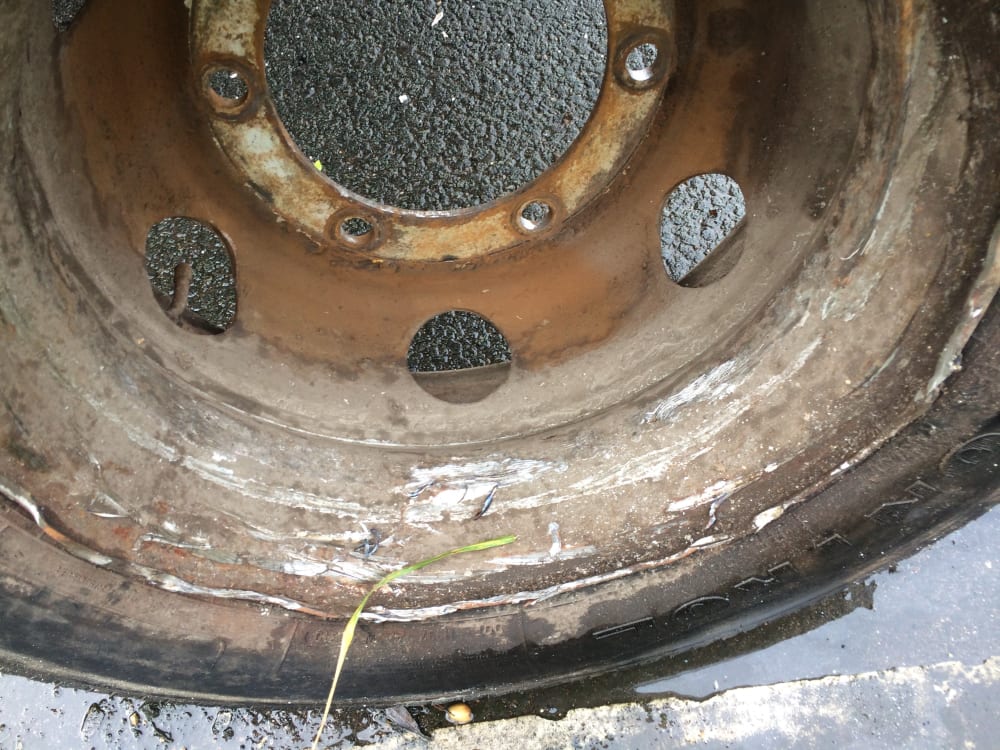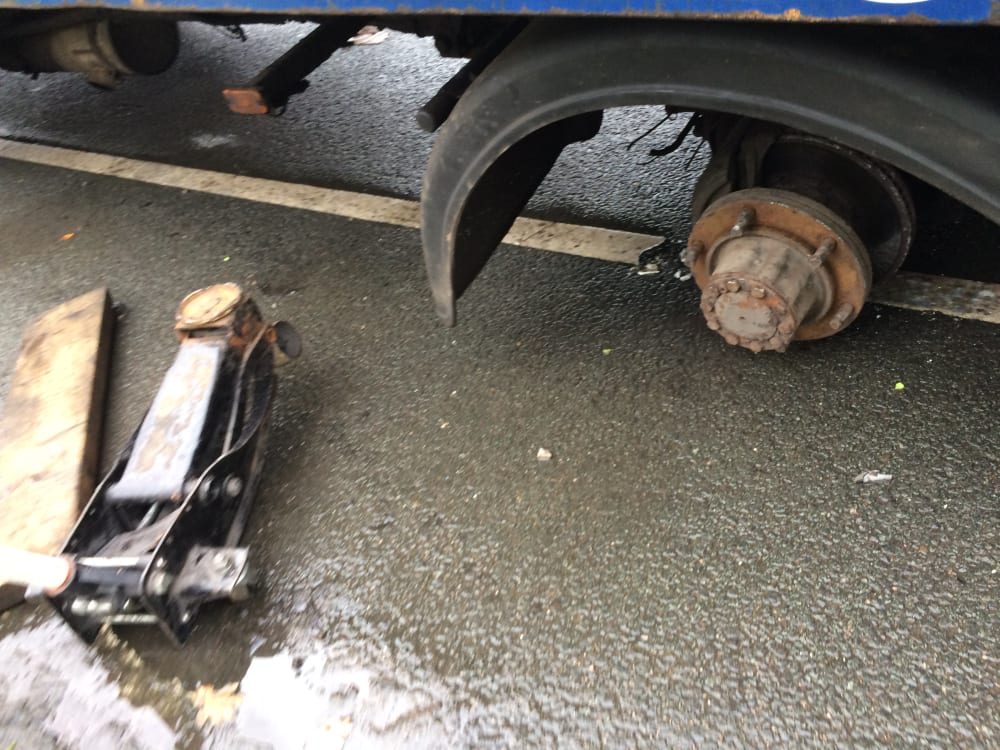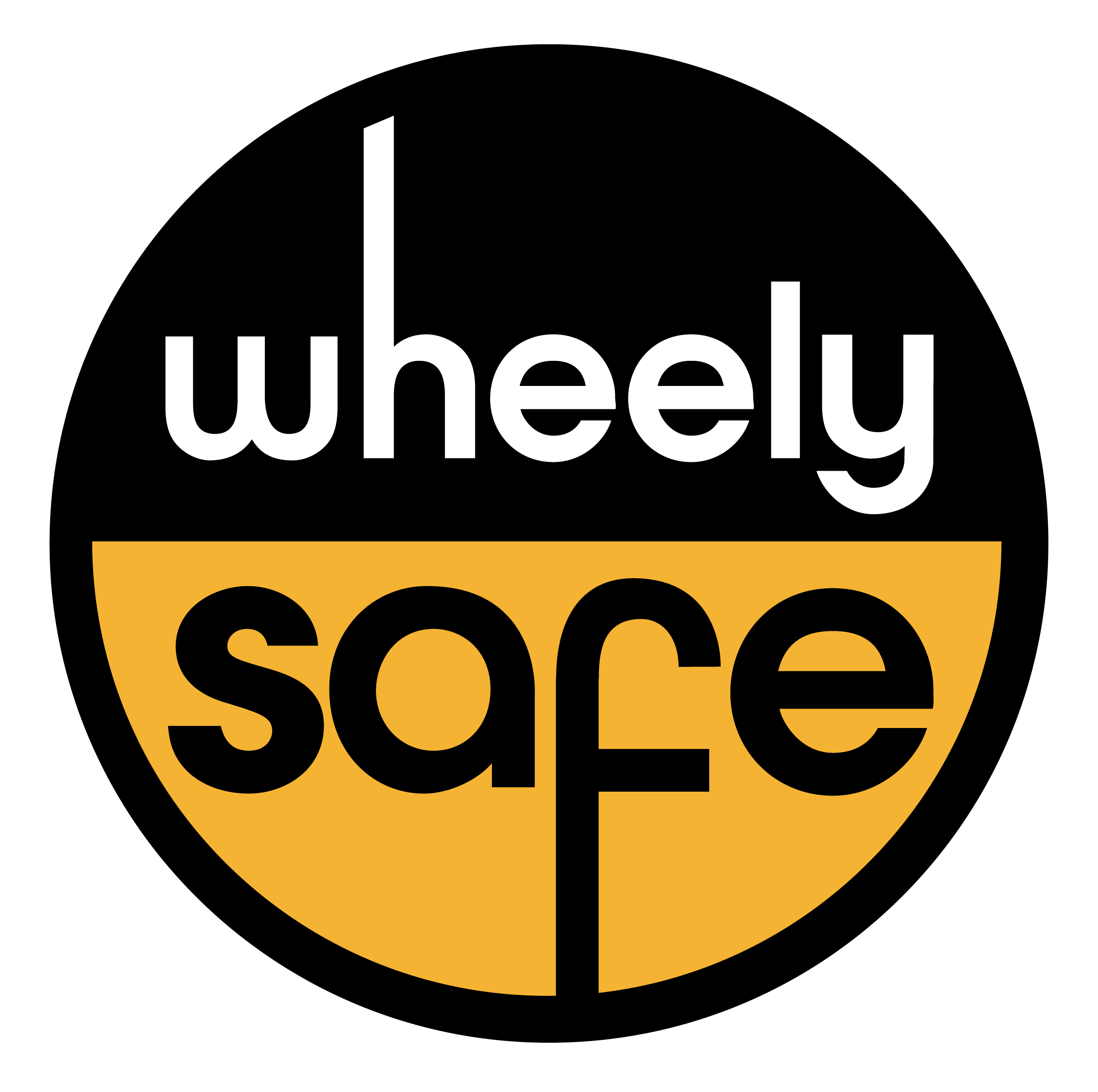What happens when a wheel comes off an HGV or PSV?
Author: Gary Thomas
When a wheel detaches from a moving vehicle – whether the result of poor fitting, damage or worn components – it can trigger a potentially catastrophic series of events which can see a loose wheel accelerate to speeds of more than 90mph and reach heights of around 50m, before colliding with other road users or infrastructure at a force of around 10 tonnes.
Published with permission from Cheshire Constabulary
It’s the culmination of a series of events which has been likened by academics to a bouncing bomb.
While, thankfully, it isn’t a scenario that happens too often, a quick Google search tells you that incidents are still occurring all around the world. And when wheels do come off trucks and buses, it can be serious, as demonstrated in May 2019 when a wheel detached from an HGV, crossed the central reservation and smashed straight through the window of the oncoming Peugeot at Junction 28 on the M6 motorway in Lancashire.
Thankfully the driver suffered only minor injuries, but it could have been a very different situation had there been passengers in the vehicle.
Looking at the statistics
Whilst the Transport Research Laboratory report into wheel security, published for the Department for Transport (DfT), estimated that there are between 150 - 400 detachments on UK roads each year, 10-27 of which result in injury, with three to seven fatalities, these figures are only the reported incidents. The actual figure could well be much higher.
Some operators have said to me “we’ve never had a wheel loss before”. That may well be the case, but they’ve been very lucky because there are so many variants involved with keeping the wheel on and so many variants that can cause the wheel to come off.
And my response is always the same… “why do you fit a fire alarm in your house if you haven’t had a fire before?”
Because, I’ll tell you now, if you do have a wheel loss the implications, potentially, are terrible. I’ve experienced it and when you get that call to say, “boss we’ve lost a wheel”. It’s a sick feeling you get in the pit of your stomach. It’s horrendous.
It all points to why the industry needs a permanent solution to end instances of wheel loss once and for all. For too long, operators taking wheel security seriously have been reliant on brightly coloured wheel nut indicators, but these only indicate potentially loose wheel nuts on stationary vehicles – and wheels don’t fall off buses, coaches, trucks and trailers when they are parked. They are also reliant on the driver conducting their walk-around vehicle inspection which, as we know, doesn’t always happen.
Consider a standard heavy truck or bus wheel fixing for a moment. There are typically 10 studs and nuts holding that wheel assembly on to the axle. The clearances that allow studs and rim holes to line up are generous so there is potential for movement – and you are reliant on nut heads and enough torque to hold the wheel in place.
As the wheel turns, it is subject to thermal expansion, vibration and axial forces. These forces load on to one or two studs in sequence rather than all ten simultaneously. The effect is that those generous tolerances present a less-than-perfect mechanical set-up.
The TRL report suggested the standard design of wheel fixings required a thorough maintenance regime to “adequately reduce the risk of detachment”. However, even the best-maintained vehicles can still be prone to mechanical failure or human error.
It’s clear a new approach is needed. The industry must look at the problem from a different angle if incidents like the one in Lancashire (and the hundreds you’ll find on YouTube) are to be prevented.
And that’s precisely what Wheely-Safe was set-up to deliver.
Published with permission from Cheshire Constabulary
Cookie policy
SAVE MONEY. SAVE TIME. MAXIMISE SAFETY.
Wheely-Safe can boost your fleet efficiency and safety overnight. Request a demo from our team today.
REQUEST A DEMOCompany Registration No. 12754234




